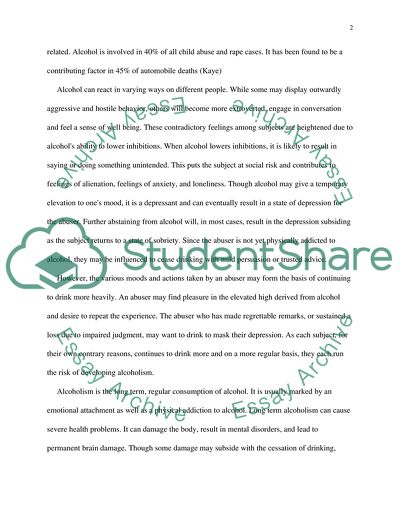Cite this document
(“The Psychological Effects of Alcohol Essay Example | Topics and Well Written Essays - 2250 words”, n.d.)
The Psychological Effects of Alcohol Essay Example | Topics and Well Written Essays - 2250 words. Retrieved from https://studentshare.org/psychology/1535545-the-psychological-effects-of-alcohol
The Psychological Effects of Alcohol Essay Example | Topics and Well Written Essays - 2250 words. Retrieved from https://studentshare.org/psychology/1535545-the-psychological-effects-of-alcohol
(The Psychological Effects of Alcohol Essay Example | Topics and Well Written Essays - 2250 Words)
The Psychological Effects of Alcohol Essay Example | Topics and Well Written Essays - 2250 Words. https://studentshare.org/psychology/1535545-the-psychological-effects-of-alcohol.
The Psychological Effects of Alcohol Essay Example | Topics and Well Written Essays - 2250 Words. https://studentshare.org/psychology/1535545-the-psychological-effects-of-alcohol.
“The Psychological Effects of Alcohol Essay Example | Topics and Well Written Essays - 2250 Words”, n.d. https://studentshare.org/psychology/1535545-the-psychological-effects-of-alcohol.


